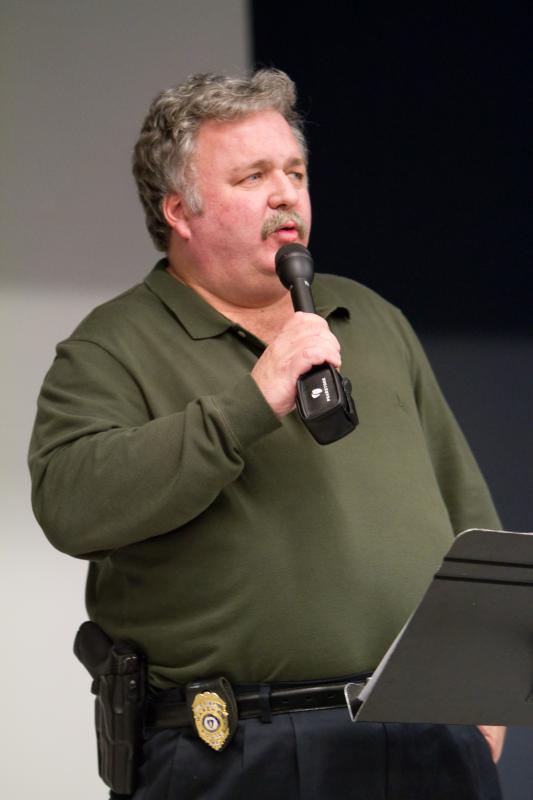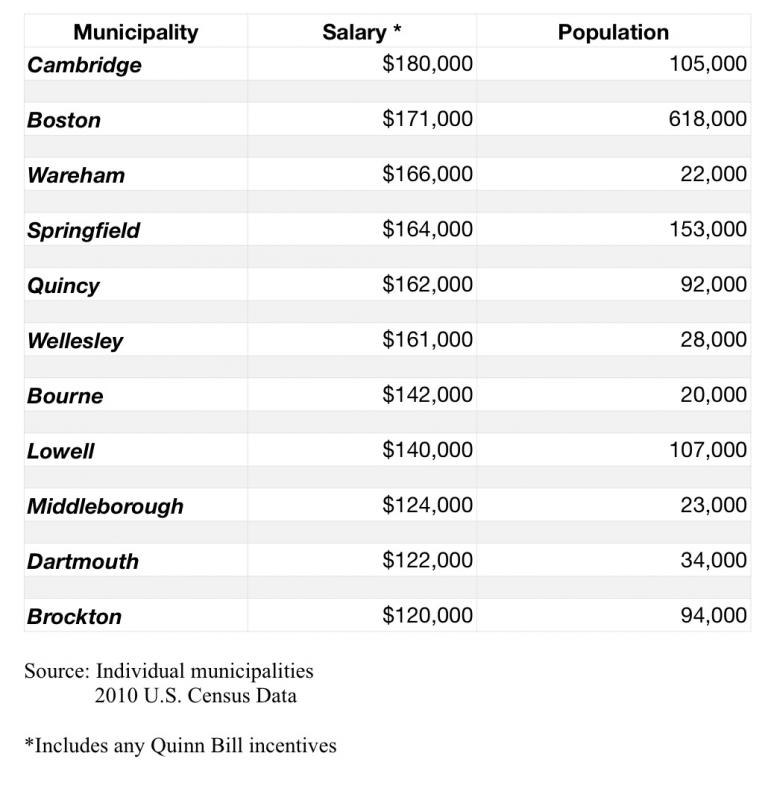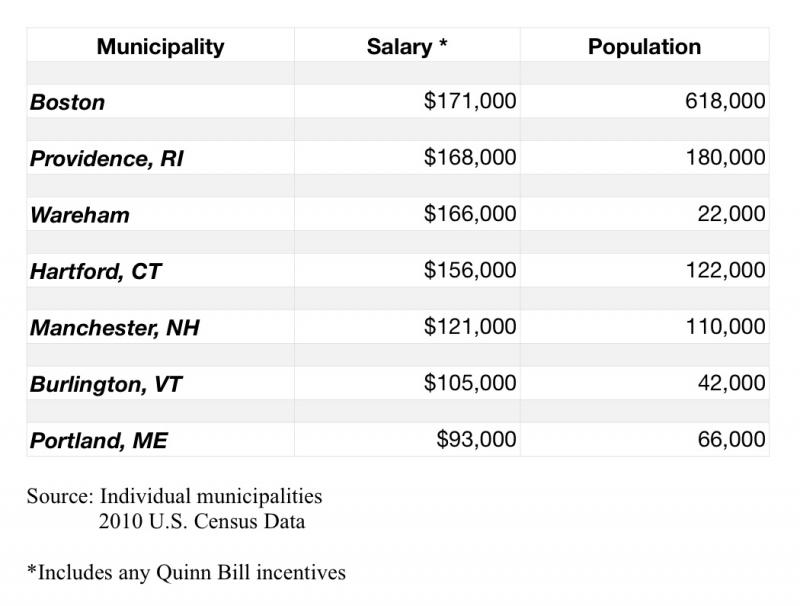Stanley ranks among the top paid chiefs in New England
Hired at $166,000 per year, Wareham Police Chief Richard Stanley is likely one of the five highest paid police chiefs in Massachusetts. In fact, his pay tops that of chiefs in the largest cities in three of the six New England states.
While many in town have touted Stanley’s work during 18 months as Wareham’s part-time interim police chief, the salary needed to lure him to Wareham full-time appeared to be much of what caused negotiations to continue for more than a year before concluding last month.
The pay package to which Town Administrator Mark Andrews and a majority of the Selectmen eventually agreed clearly puts Stanley near the head of the pack in New England – perhaps at the head of the pack if a chief's compensation is compared to a community’s size.
Now hired full-time in Wareham, Stanley earns $8,000 more per year than his counterpart in Hartford, Connecticut, whose force patrols nearly 100,000 more people.
Police chiefs in Burlington, Vermont; Portland, Maine; and Manchester, New Hampshire, are paid roughly $105,000, $93,000, and $121,000, respectively.
Stanley’s salary more closely compares to that of Providence’s Police Commissioner, who is paid $168,000, and rivals that of the Boston Police Commissioner.
The Boston Commissioner is paid a salary of $171,468 per year to oversee law enforcement in a city of 618,000 residents. That is approximately $5,000 more than what Stanley earns in Wareham with 22,000 full-time residents.
Police chiefs in Brockton, Quincy, and Lowell are paid roughly $120,000, $162,000, and $140,000, respectively.
When Stanley’s salary was presented to the Board of Selectmen, Andrews described the chief's base pay as $130,000, with an additional $36,000 through the Massachusetts “Quinn Bill.” But, while the Quinn Bill is state legislation, most of the $36,000 will be town money.
The Quinn Bill was enacted in 1970 as a way to encourage police officers to further their education. Under the Quinn Bill, an officer can receive a bonus of 10%, 20%, or 30% of his or her base salary.
When fully funded by the state, the cost of each Quill Bill bonus was split equally between the town and the state. In 2009, the state doled out $56 million in education incentives.
In recent years, funding for the bill has been drastically reduced by the Legislature. The state no longer provides half the funding for incentives. In the current state budget, Massachusetts has appropriated $5 million to fund the program.
The $5 million is prorated such that each town receives the same percent reimbursement, according to Katy Abel, Associate Commissioner for External Affairs for the Massachusetts Department of Higher Education.
This year Wareham will receive $12,000 in Quinn Bill reimbursements toward the approximately $380,000 in education incentives owed to Stanley and other Wareham officers.
Andrews said all of the Quinn Bill funding the town receives will be put toward the $36,000 Stanley is set to receive in education incentives. That leaves the town to pay the $24,000 remainder of Stanley's incentive -- and 100% of the approximately $345,000 due to other police officers.
(Cities and towns are not obligated to provide police officers with education incentives through the Quinn Bill. But, among those that have opted into the program, most -- like Wareham -- have contracts that require that the incentive money be paid in full whether or not the state provides partial reimbursement.)
Stanley came to Wareham as part-time interim chief in June 2009 while simultaneously working as full-time police chief of North Andover. According to the North Andover Town Manager's office, Stanley's last day in North Andover will be May 16.
North Andover Town Manager Mark Rees said Chief Stanley’s annual earnings in that town were $133,226 per year: $100,833 in base salary and $25,208 in Quinn education incentives. Stanley also received additional holiday and longevity pay.
It is unclear why Stanley is earning $11,000 more in education incentives in Wareham. Andrews said different towns compensate education incentives differently.
According to a press release issued by the North Andover Police Department, Stanley told to North Andover that Andrews was able to offer him a significant increase in salary beyond what North Andover has the fiscal capacity to provide and that, in the financial interests of his family, he could not turn down the opportunity in Wareham.
The higher salary Stanley is receiving in Wareham will be very good for him in retirement, even if he remains in the Wareham post for less than two years.
Upon retirement, Stanley's annual pension will be equal to 80% of the average salary from his three highest paid consecutive years of service. If Stanley works in Wareham at his currently salary for 18 months, he will earn a pension comparable to his total salary in North Andover.
According to Bill Farmer, Executive Director of the Plymouth County Retirement Association, North Andover and Wareham will both be responsible to pay Stanley’s pension, based on how much time he was employed in each town. That means Essex County taxpayers will pick up most of the tab based on Stanley's many years in North Andover.
During his time in Wareham, Stanley is credited with helping the Police Department earn state certification, obtaining a fleet of new police cruisers, and revitalizing the department's K-9 Unit.
While running for election in March, Selectman Ellen Begley said “[Stanley] is worth his weight in gold."

















